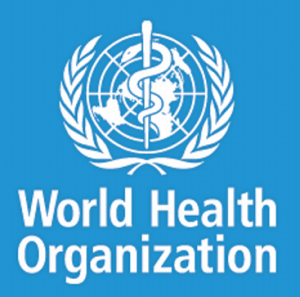WHO builds capacity of health workforce in Ghana on air pollution and health
 The World Health Organisation (WHO) has organized a train-the-trainer workshop on air pollution for 50 health professionals as part of efforts to reduce the health risks of air pollution globally.
The World Health Organisation (WHO) has organized a train-the-trainer workshop on air pollution for 50 health professionals as part of efforts to reduce the health risks of air pollution globally.
The participants drawn from all the 16 regions include physicians, public health nurses and public health officers are expected to train other health workers on the link between air pollution and health and improve their ability to induce advocacy actions.
The workshop, among other things, sought to build the capacity of health workers and patients to improve their understanding and apply knowledge and to train others on the link between air pollution and health and effective interventions.
It also sought to build the capacities of participants to include air pollution knowledge in the assessment of patients, while identifying most vulnerable or susceptible individuals.
According to the WHO, nine out of 10 people breathe unsafe levels of polluted air which poses as health risk for everybody, with the most vulnerable groups such as the elderly, children, pregnant women, and people with chronic health conditions paying the highest price of air pollutant exposure.
The global health body also maintains that households in Ghana (94 per cent rural and 76 per cent urban) heavily rely on polluting fuels for cooking, contributing to great exposure to air pollutants.
It is against this background that the WHO is taking steps to ensure the health workforce play a more prominent role in the battle for clean air by strengthening the capacity of the health sector, to address the adverse health effects of air pollution.
The workshop in Ghana is, therefore, part of piloting the available training materials to shape the future WHO toolkits on air pollution and health for the health workforce that would be launched later this year.
Dr Elizabeth Juma of the WHO Ghana Office said air pollution was the biggest environmental risk factor for health and in Ghana annual concentrations of air pollution were ten times the WHO air quality guidelines.
“Tragically, an estimated 3000 children under five years die each year in Ghana from exposure to household air pollution from cooking with polluting stoves and fuels,” she disclosed.
She said to address the problem, health workers needed to be equipped with knowledge and tools to tackle these challenges at the community and individual level.
“By engaging in this training, you are committing to understanding more about air pollution including short-lived climate pollutants, and their harming effects on people, communities and the environment,” she reminded the participants.
Dr Pierpaolo Mudu, WHO European Centre for Environment and Health, said the WHO had done some work on air pollution in Ghana with the support of the Ghana Health Service and that the training was held in Ghana because the country could represent a model for other countries.
He said projects on air pollution, over the years, had always targeted people in the environment and transport sectors, adding that it was the first time the WHO was engaging the health sector anywhere in the world on air pollution.
“I think it is a very good choice to be here, we have seen a lot of participation and we expect the people here to improve the health of the population after this training,” he noted.
Source: GNA
